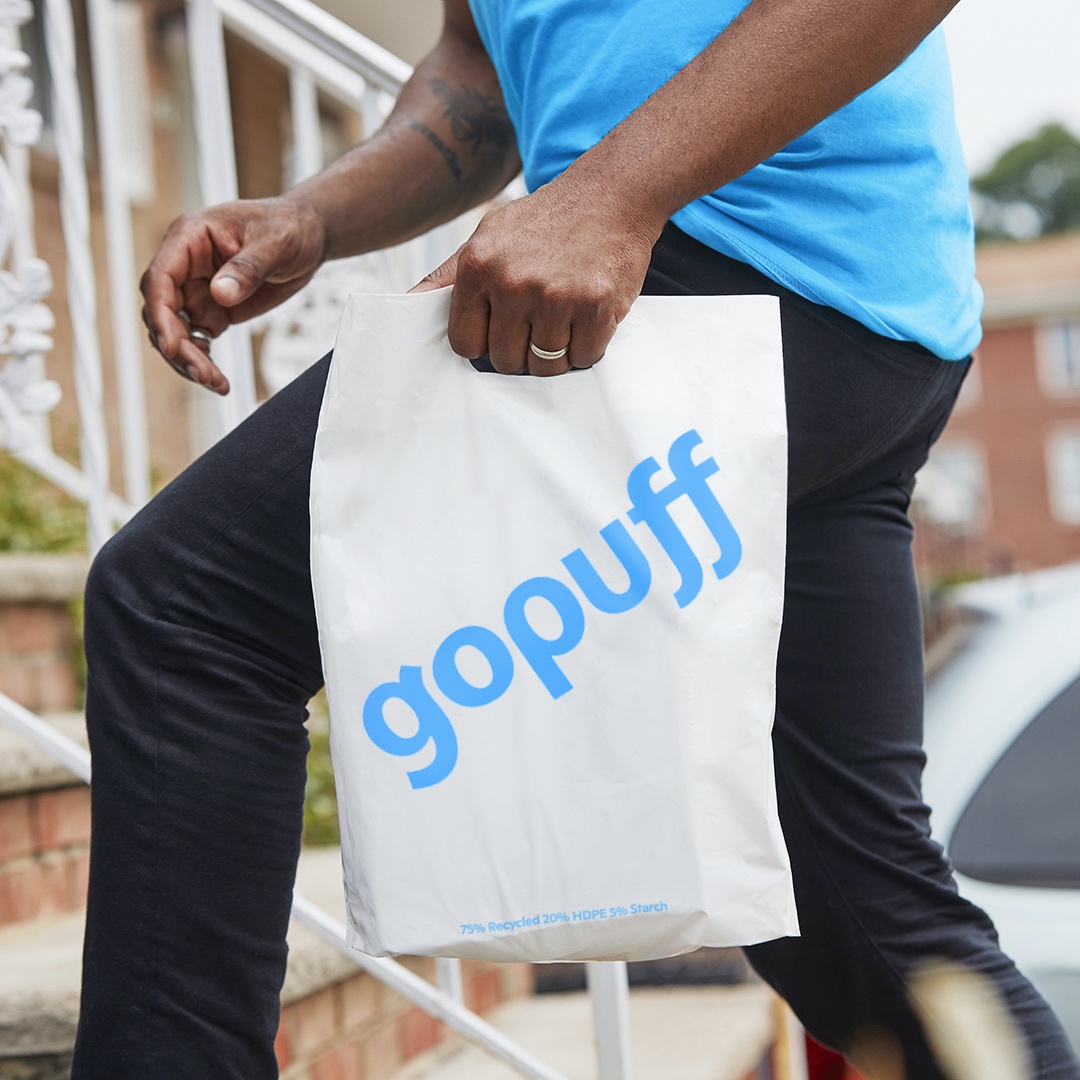We’ve said it before and we’ll say it again: Another week, another Gopuff [insert major business news here]. But it’s unique that the most recent news is a critical look from a federal body.
Back in May, the Spring Garden-headquartered company announced it had partnered with Uber to bring its “everyday essentials” of snacks and alcohol delivery items to Uber Eats customers through its network of micro-fulfillment centers.
The partnership links Uber’s U.S. consumer base with Gopuff’s “expertise” in instant needs delivery, the companies said in a statement. It’s the first deal of its kind for both companies, and rolled out in June with a national expansion planned over the course of the summer.
“It will make use of Gopuff’s hyper-local logistics and driver network to reach Uber customers across the country,” an Uber statement said.
But about two months later, the companies gained some attention from the Federal Trade Commission, which enforces antitrust laws in the U.S., The Information reported last week. The agency said the deal was potentially hampering competition in the online alcohol and grocery delivery space. The Information also reported that the agency is looking into Gopuff’s recent planned $1.1 billion purchase of alcohol delivery company Drizly. The investigations are separate, reports said.
Gopuff has been branching out from its original business model to include new verticals in recent months. In July, it introduced Gopuff Kitchen, offering made-to-order meals via its app. It’s also been acquiring complementary companies over the last year, such as United Kingdom-based Fancy, maker of a last-mile delivery platform that gets products to local consumers in half an hour (essentially, the British Gopuff). And last week, it announced the acquisition of Dija, another European on-demand delivery platform that will allow it to expand into France and Spain.

Gopuff’s and Uber’s multi-sided market opens up possible antitrust issues on a few different fronts, said Min-Seok Pang, an associate professor of management information systems at Temple University’s Fox School of Business.
Earlier this summer, the FTC swore in a new chair, Lina Khan, who’s become known for aiming to impose more regulations on big tech companies like Facebook and Amazon and for having an active stance against monopolies. She’s written for the Yale Law Journal on the potential antitrust issues with Amazon, saying the company has “escaped antitrust scrutiny” despite monopolizing much of the ecommerce space.
With this Uber and Gopuff partnership, there’s the potential for a monopoly in a few different ways, Pang told Technical.ly. On one side, with supply, there could now be fewer options in the snack and grocery delivery space. And on another side, drivers, the companies sharing the labor force means they’re in an advantage to lower the wage they pay.
And Gopuff has already been at the center of another piece of scrutiny by its drivers. Last month, a petition signed by a few dozen drivers — and at least four in Philadelphia — was circulated calling for better pay practices and clarification around their role within the company.
Gopuff’s drivers are independent contractors who pick up orders from one of its hundreds of micro-fulfillment centers across the U.S. and deliver to customers in 30 minutes or less. But in the petition, drivers claim their independent contractor status is unlike those at other gig-based companies like Uber. They say they can be terminated from the app for missing a shift or refusing an order, and that the pay structure promised when signing up doesn’t always prove to be true.
If the FTC finds that this partnership is creating too much of a monopoly, the regulatory agency could sue the two companies through the federal courts, Pang said. In many cases, these are handled through settlements, and the FTC could potentially ban the companies from lowering their hourly pay rates or require them to raise their prices.
“If Gopuff tries to expand itself organically without partnerships, there wont be antitrust issues,” Pang said. “The issue is it’s trying to partner with a much bigger platform with a lot of the customer base already. That’s why it attracts the FTC in this case.”
From a business stance, it’s a keen idea for Gopuff, he added. It’s increasingly expensive to expand, and there’s a tight labor market. It’s likely getting harder to hire more and more drivers to keep up. But the action could lead to a less-free goods and labor market.
“In this current economic environment, it’s a smart idea for them,” Pang said, “but that’s why it’s inviting this scrutiny.”







